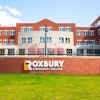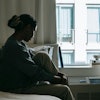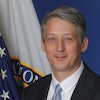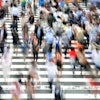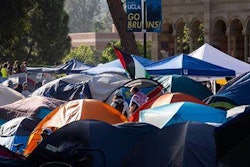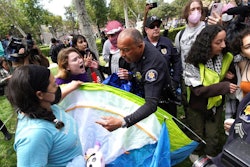Over the past few weeks, higher education has seen students vehemently express opposition to Israel’s ongoing military operations in Palestine, transforming campuses to protest zones.
Protests have been met with police force, including widespread arrests.
“Protests can be very effective at getting an issue into national media,” said Dr. Omar Wasow, an assistant professor of political science at University of California Berkeley who studies civil rights-era protests of the 1960s. “Student protests are helping to set the national news agenda."
The response by university officials to the protests has raised eyebrows and prompted fierce criticism from some scholars, who have condemned the decision by some colleges and universities to summon law enforcement.
Columbia University's President Dr. Nemat Shafik asked for the New York Police Department to break up the student encampments on the university's South Lawn, citing “safety concerns” because the protesters “interfered with the operation of the University, refused to identify themselves, refused to disperse, set up tents on campus space, failed to comply with policies, and damaged campus property.”
Student protesters there were suspended, and more than 108 were arrested for trespassing. According to NYPD, those who were arrested were peaceful and did not pose resistance.
The students have filed a federal civil rights complaint against Columbia and are calling for the school to be investigated for “discriminatory treatment of Palestinian students and their allies.”
